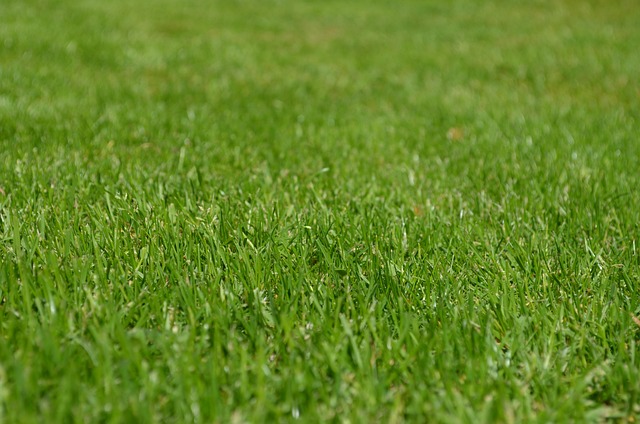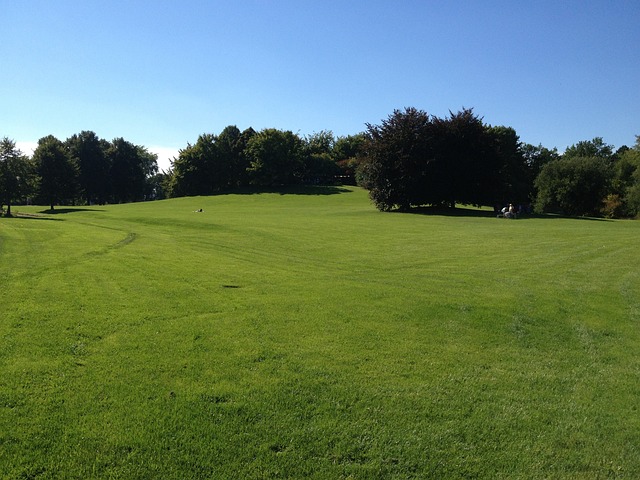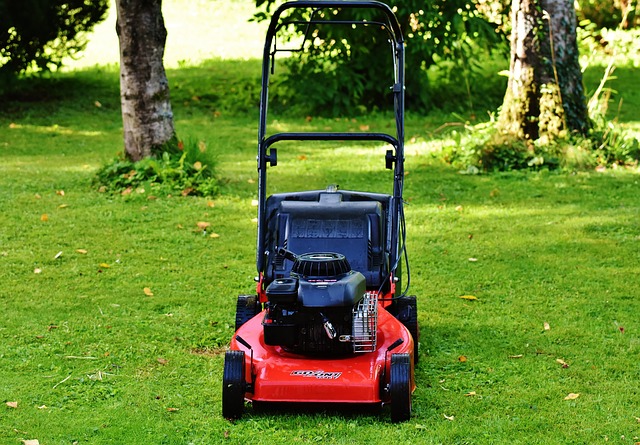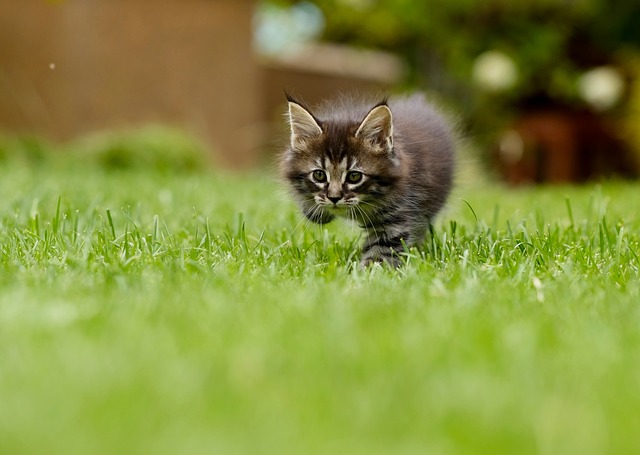Traditional lawn care practices cause significant environmental damage due to chemical use, excessive water consumption, and harm to wildlife. Eco-friendly alternatives like organic fertilizing, seasonal management, integrated pest management (IPM), and lawn aeration promote sustainable lawn care. These methods include least toxic pest control, natural fertilizers, and improved soil health through aeration, leading to healthier ecosystems and vibrant lawns without harmful consequences. Adopting these practices, driven by environmentally conscious homeowners and businesses, reduces ecological impact while enjoying lush lawns. Professional lawn care services offer tailored solutions, optimizing mowing techniques, using eco-friendly fertilizers and pesticides, and providing specialized aeration for long-term lawn health. Seasonal lawn maintenance, such as spring/fall aeration and organic weed control, further minimizes environmental harm, making these services ideal for those seeking both beautiful outdoor spaces and ecological preservation.
In today’s eco-conscious world, understanding the environmental impact of traditional lawn care practices is more crucial than ever. This article explores sustainable alternatives and offers a comprehensive guide to eco-friendly lawn care. From season-wise maintenance to professional services, learn how to optimize your lawn’s health while reducing its environmental footprint. Discover effective lawn weed control, pest management, aeration, and fertilizing methods that align with nature. Embrace these practices for healthier lawns and a greener planet.
- Understanding the Impact of Traditional Lawn Care on the Environment
- Adopting Sustainable Practices: A Shift Towards Eco-Friendly Lawn Maintenance Solutions
- Season-wise Lawn Care: Optimizing Health and Reducing Environmental Footprint
- The Role of Professional Lawn Care Services in Promoting Sustainability
- Comprehensive Guide to Eco-Friendly Lawn Weed Control and Pest Management
Understanding the Impact of Traditional Lawn Care on the Environment

Traditional lawn care practices often come with significant environmental impacts, highlighting the need for a greener approach. Many conventional methods involve extensive use of chemicals such as pesticides and fertilizers, which can contaminate water sources and harm beneficial insects and wildlife. Additionally, frequent mowing contributes to air pollution and greenhouse gas emissions. The excessive use of water for irrigation, especially during dry seasons, strains local water supplies. These practices not only degrade the environment but also fail to promote the long-term health of lawns, often leading to increased maintenance requirements.
By adopting eco-friendly lawn care services, homeowners and professional lawn care providers can mitigate these issues. Alternative lawn maintenance solutions like organic fertilizing care, seasonal lawn management, and integrated pest management (IPM) offer sustainable approaches. IPM focuses on preventing and controlling pests using the least toxic methods, while organic fertilizers nourish the soil and grass naturally. Lawn aeration services help improve air circulation, promoting deeper root growth and reducing water consumption. These practices contribute to a healthier ecosystem, ensuring lush and vibrant lawns without harmful environmental consequences.
Adopting Sustainable Practices: A Shift Towards Eco-Friendly Lawn Maintenance Solutions

Adopting sustainable practices is a growing trend among environmentally conscious homeowners and businesses, driving a shift towards eco-friendly lawn maintenance solutions. Traditional lawn care methods often rely heavily on chemical fertilizers, pesticides, and energy-intensive equipment, contributing to environmental degradation. However, modern lawn care services prioritize stewardship of the land, focusing on seasonal lawn maintenance routines that promote ecological balance. Professional lawn care services now offer comprehensive solutions, including organic lawn fertilizing care, integrated pest management strategies that minimize toxic chemicals, and lawn aeration services designed to enhance soil health.
By embracing these eco-friendly lawn maintenance solutions, homeowners can contribute to a healthier environment while enjoying lush, vibrant lawns. Lawn mowing services have also evolved, incorporating energy-efficient equipment and innovative techniques to reduce the carbon footprint associated with maintaining green spaces. These sustainable practices not only benefit the planet but also lead to more resilient and aesthetically pleasing lawns, ensuring that both people and the planet thrive.
Season-wise Lawn Care: Optimizing Health and Reducing Environmental Footprint

Eco-friendly lawn care practices offer a balanced approach to maintaining lush, vibrant lawns while minimizing environmental impact. One key strategy is seasonal lawn maintenance, which aligns with nature’s rhythms. During spring and fall, focus on lawn aeration services to promote healthy root development and improve soil structure. This reduces the need for excessive watering and fertilizing.
In summer, implement lawn weed control methods that are less harmful to the environment, such as organic herbicides or manual weeding. For lawn pest management, integrate natural predators or use eco-friendly pesticides sparingly. Winter offers an opportunity for lawn fertilizing care using slow-release fertilizers to nourish the soil and grass without contributing to water pollution. These lawn maintenance solutions not only optimize lawn health but also reduce the environmental footprint of lawn care services and lawn mowing services.
The Role of Professional Lawn Care Services in Promoting Sustainability

Professional lawn care services play a pivotal role in promoting sustainable practices in the landscape industry. These experts offer tailored solutions for lawn maintenance, ensuring that green spaces remain healthy and vibrant while minimizing environmental impact. Lawn mowing services, for instance, are optimized to reduce fuel consumption and emissions by employing modern equipment and efficient techniques.
Furthermore, professional lawn care providers provide comprehensive lawn fertilizing care, utilizing organic and slow-release fertilizers to promote nutrient uptake without causing harm to local ecosystems. They also offer specialized lawn aeration services, which improve soil health by reducing compacted soil, enhancing water absorption, and fostering better root growth. Additionally, these services tackle lawn weed control and pest management using eco-friendly methods, thereby preserving biodiversity and minimizing the use of harmful chemicals.
Comprehensive Guide to Eco-Friendly Lawn Weed Control and Pest Management

Maintaining a lush, green lawn doesn’t have to come at the cost of the environment. With eco-friendly practices, you can achieve a vibrant and healthy lawn while preserving local ecosystems. This comprehensive guide outlines effective lawn weed control and pest management strategies that align with sustainable lawn care services.
From seasonal lawn maintenance to professional lawn aeration services, incorporating organic lawn fertilizing care and natural lawn weed killers can significantly reduce environmental impact. Eco-conscious lawn care services prioritize non-toxic, biodegradable products and methods, ensuring a healthier yard and a cleaner planet. With a focus on long-term healthy lawn care plans, these practices not only manage unwanted weeds and pests but also promote the overall well-being of your lawn, creating an aesthetically pleasing outdoor space that is safe for both you and local wildlife.
Incorporating eco-friendly lawn care practices not only benefits the environment but also promotes a healthier and more sustainable landscape. By adopting these methods, including seasonal lawn maintenance, professional lawn aeration services, and natural pest management, individuals and lawn care services can reduce their environmental impact while fostering a vibrant and thriving lawn. This holistic approach to lawn care ensures a greener future for both our yards and the planet.
